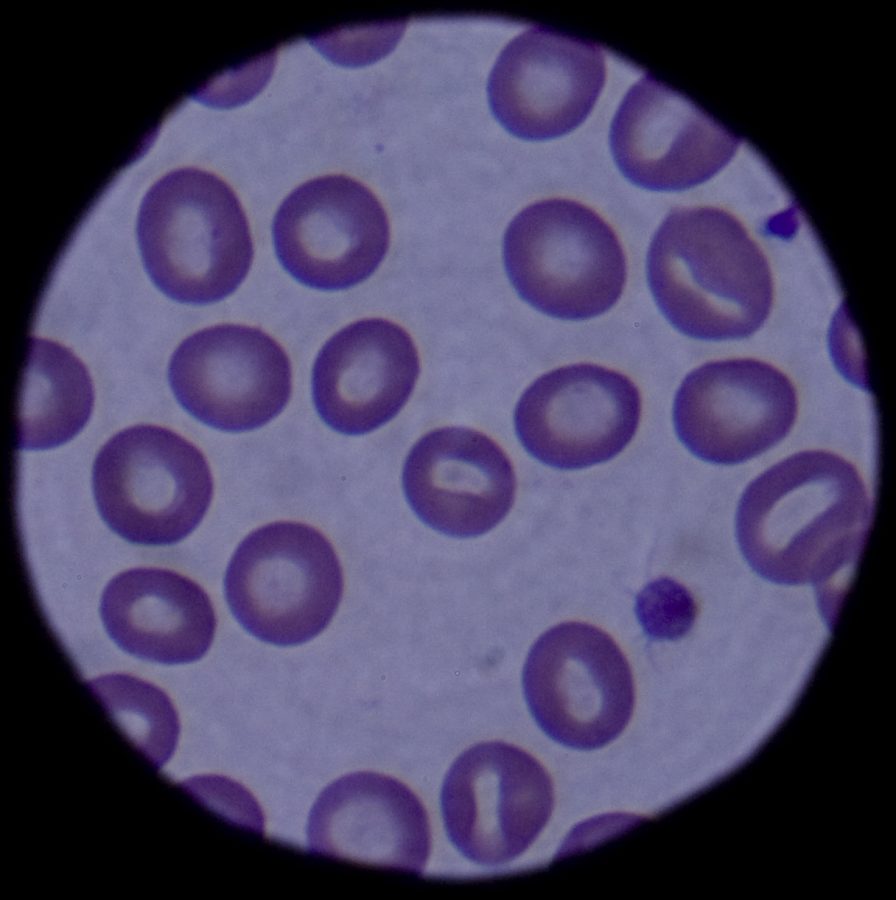When blood runs green
Red and white blood cells are photographed through a microscope March 4, 2009, Eielson Air Force Base, Alaska. The cells are magnified by 100-times and stained purple, which makes it easier for the lab technician to count the white blood cells for signs of infection. (U.S. Air Force photo by Airman 1st Class Laura Max/Released)
May 8, 2019
Having green blood is usually a characteristic linked to those of monsters and aliens. In the Goosebumps series, the monsters have slimy green blood. In Star Trek, Vulcan also bleeds green. But what if humans also have green blood? A rare condition known as Sulfhemoglobinemia alters the sulfur levels in blood, causing it to turn green.
Sulfhemoglobinemia is a condition in which hemoglobin is oxidized with sulfur atoms and an immoderate supply of sulfur becomes present in the blood. When a sulfur atom reaches the hemoglobin, it prevents the blood cell from carrying oxygen. The excessive amount of sulfur is typically brought on by the usage of medications that contain sulfuric compounds. For instance, the use of certain migraine medicines has been linked to the condition. This condition results in cyanosis, where the blood turns a dark green color, causing the skin to develop a bluish, purple hue. In addition, because the condition is so rare, there is no specific treatment, and if a high level of sulfhemoglobin is present in blood, it can end with fatal results.
One case of this green blood was found in Canada. A 42-year-old man was sent to the hospital and quickly shocked his surgeons when green blood flowed out of his arteries. The doctors, confused with his oddly colored blood, began to research the cause. They soon determined that the patient had sulfhemoglobinemia, which was caused by his excessive intake of migraine medication. The man stopped taking the medication and his red blood cells regenerated. This allowed for the blood to return back to its normal color.
Sulfhemoglobinemia, although it may seem mythical, is a condition that can affect anyone. This illness serves as an example for why it’s important to be conscious of your medication intake.














































































